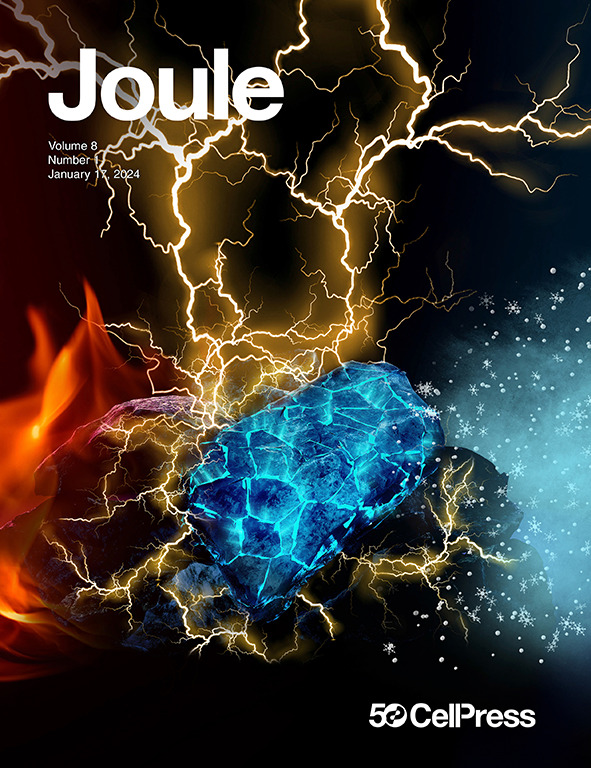A universal approach to high-performance thermoelectric module design for power generation
IF 38.6
1区 材料科学
Q1 CHEMISTRY, PHYSICAL
引用次数: 0
Abstract
Thermoelectric modules fabricated by traditional welding fall short of achieving optimal conversion efficiencies, primarily due to performance degradation of materials at high temperatures, severe elemental diffusion, and residual thermal stress at the interface. Transient liquid phase bonding enables the realization of joints with high-melting-point compounds at low bonding temperatures, providing a promising solution for achieving “low-temperature bonding and high-temperature service.” Owing to the low eutectic point of the solder and high melting points of compounds, we optimize the design of a germanium-telluride-based module at 533 K, which is successfully applied at the hot-side temperature of 773 K. Attributed to high-performance materials and reliable joints, the module realizes a high conversion efficiency of ∼15.1% and remains stable throughout 150 h of service. By adopting the same approach, the low- (Bi2Te3) and high-temperature (half-Heusler) modules are assembled. We provide a promising and general route for the assembly of full-temperature-range thermoelectric devices.


用于发电的高性能热电模块设计的通用方法
传统焊接制造的热电模块无法达到最佳的转换效率,主要原因是材料在高温下的性能退化、严重的元素扩散和界面处的残余热应力。瞬态液相键合可以在低键合温度下实现高熔点化合物的连接,为实现“低温键合,高温服务”提供了一个有前途的解决方案。由于焊料的共晶点低,化合物的熔点高,我们优化设计了一个533 K的碲化锗基模块,该模块成功地应用于773 K的热侧温度。得益于高性能材料和可靠的接头,该模块实现了高达15.1%的转换效率,并在150小时的使用期间保持稳定。采用同样的方法,组装低(Bi2Te3)和高温(半赫斯勒)模块。为全温度范围热电器件的组装提供了一条有前途的通用途径。
本文章由计算机程序翻译,如有差异,请以英文原文为准。
求助全文
约1分钟内获得全文
求助全文
来源期刊

Joule
Energy-General Energy
CiteScore
53.10
自引率
2.00%
发文量
198
期刊介绍:
Joule is a sister journal to Cell that focuses on research, analysis, and ideas related to sustainable energy. It aims to address the global challenge of the need for more sustainable energy solutions. Joule is a forward-looking journal that bridges disciplines and scales of energy research. It connects researchers and analysts working on scientific, technical, economic, policy, and social challenges related to sustainable energy. The journal covers a wide range of energy research, from fundamental laboratory studies on energy conversion and storage to global-level analysis. Joule aims to highlight and amplify the implications, challenges, and opportunities of novel energy research for different groups in the field.
 求助内容:
求助内容: 应助结果提醒方式:
应助结果提醒方式:


